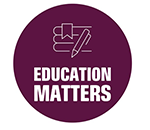Gauteng Education MEC Panyaza Lesufi said he was thrilled with the matric results.
The Eastern Cape has surpassed its goal of achieving a 75% pass rate in the 2019 matric results. On Tuesday night, when the results were released, it was announced as the most improved province, with a 76.5% pass rate.
The province’s education MEC, Fundile Gade, said the Eastern Cape had set itself a target of a 75% pass rate for 2020, but the fact that it did even better shows that the systems put in place to improve education in the province are already bearing fruit.
Speaking to the Mail & Guardian at the announcement of the results, Gade said the province has not only improved in the pass rate, but has also improved in the bachelor passes and the overall quality of the results.
“We have not improved results just for the sake [of it] … We have been able to move from below and tie with Northern Cape so what else do they want now?” he said.
The Free State has topped the provincial rankings for four years and both its MEC for education, Tate Makgoe, and its premier, Sisi Ntombela, attributed this to teamwork. The province achieved a 88.4% pass rate.
“I am encouraged by the performance of the poorest schools. This really goes to show that there is nothing wrong with the black child, as long as they are adequately resourced. I am more thankful to the teachers, parents, our partners and, most importantly, the learners themselves for their dedication,” Makgoe said. “My philosophy is that I involve everyone in my work. From churches, SGBs [school governing boards] and the community, I make education a societal issue.”
Ntombela also expressed her excitement at the result her province achieved.
“I’m very excited. I know MEC Tate is a hard worker; I am happy for the work he has done for the Free State province. This is all about teamwork from HODs [head of departments], principals and parent. We are going to maintain this … it’s been almost four years now. The recipe has always been teamwork and commitment.”
Six districts in the top 10 were from Gauteng, which achieved the second-highest pass rate nationally, at 87.2%. Education MEC Panyaza Lesufi said he was thrilled with the result.
“I’m thrilled, I must be honest … The investment that we have made into township education has carried us. The drop that you see is unfortunate and it comes from [former] Model C schools. I think those schools have reached their maturity because they have been carrying the system for too long,” he said
“In terms of assessments, Gauteng did well. It’s just the [numbers] that [are] not on our side. My only excitement are the township schools. When we release our results, people will be shocked at how township education has progressed: the new things we have introduced in terms of schools of specialisation and ICT [information and communications technology] investment. There’s one high school in Tembisa that has recorded a 97% [pass rate]. We cannot be happy more than that. We have cracked the stubbornness of poor education in the township. Now that we have cracked that, people must watch out for Gauteng.”
KwaZulu-Natal was also lauded as one of the provinces that has improved the most, with a pass rate of 81.3%, a 5.1 percentage point increase.
Education MEC Kwazi Mshengu said the success was because of the interventions the province has put in place. He said the province would now focus on the whole system — and it was the view of the department that it should not focus at the tail end.
“When we do that, we then need to spend more money on matric interventions [at] the 11th hour , so we want to get everything right from grade 1 until grade 12,” said Mshengu.
He also added that he was not bothered about the ranking of provinces and saw it as a “healthy competition” between MECs, but said the KwaZulu-Natal sets its target and paces itself against the backdrop of the local conditions and the size of the basic education system in the province.
Announcing the results, basic education minister Angie Motshekga said the department was considering different ways of announcing the performance of the matric results instead of focusing on the overall pass rate.
“We have come up [with] and have been piloting the inclusive basket of criteria, which will use variables over and above overall pass numbers and percentages, including but not limited to: participation and success rate in mathematics, physical science, accounting, economics, and business studies subjects; number and percentage [of learners] who attained bachelors [passes] and distinctions; [and] the number and pass rate of progressed learners, as well as the secondary throughput rates,” she said.
